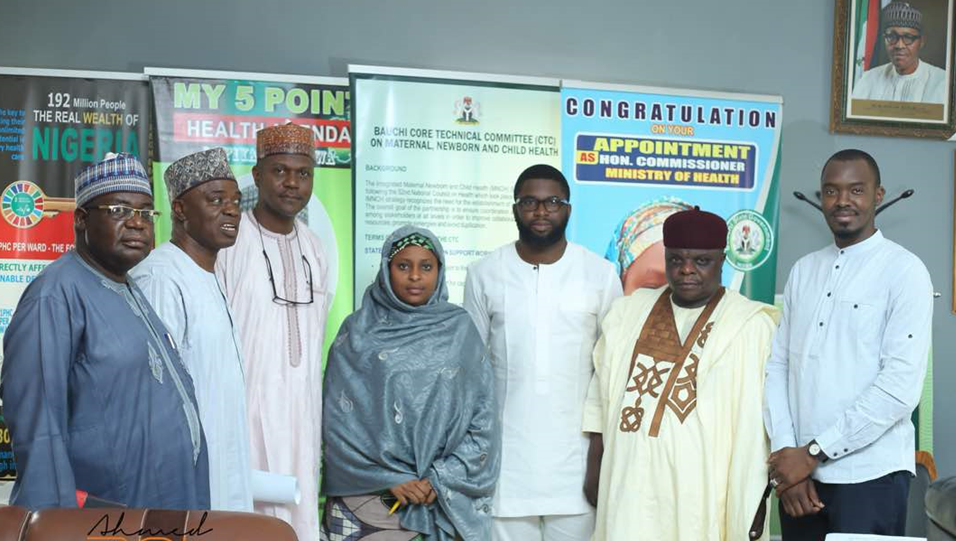Bauchi State Legislators Advocate for Increased Spending on Health
Categories: Announcements, Governance and Leadership, Health Finance, Where We Work
Government spending for health in Nigeria is suboptimal, leading to unacceptably high rates of out-of-pocket expenditure for health- estimated at 70% of total health expenditure. This situation is partly a result of chronic underfunding of the health sector, as well as inefficiencies in the release and management of funds. In response to this, the USAID’s Health Finance and Governance (HFG) project in Nigeria supports the Bauchi State Ministry of Health with institutional reforms. Such reforms includes the setting up a multi-sectoral cross-cutting Technical Working Group (TWG) on health financing to track budget performance, and generate and share evidence with high-level stakeholders to guide policy decisions.
Evidence quickly generated by the TWG revealed zero capital releases to the Hospitals Management Board, the entity responsible for managing and maintaining secondary health facilities in the state. This kind of chronic underfunding has led to the degradation of both services and infrastructures across state hospitals. The TWG also worked through the Legislative Network for Universal Health Coverage (UHC) leveraging the statutory function of the Bauchi State House of Assembly (SHoA) members to call for a State of Emergency in the health sector.

(r-l) Ibrahim Angale, Bauchi State Program Coordinator; Dr Saidu Aliyu Gital, Permanent Secretary, Bauchi State Ministry of Health; Mr. Somto Mbelu, HFG Nigeria communication Specialist;, Dr Zuwaira Ibrahim Honourable Commissioner of health, Bauchi State; Pharm Adamu Gamawa Executive Secretary State Primary healthcare development Agency (SPHCDA) and other stakeholders from Bauchi State Ministry of health. Photo credit: Ahmed Zol
To further address the situation, the Bauchi SHoA adopted a resolution to ensure that health spending would reach 30% of the total budget. Additionally, the legislators tasked the executive arm of government to consider using a percentage of debt relief fund to fund the health sector. As a commitment from their part, the legislators requested that the Executive Governor take necessary steps to ensure the health sector receives appropriate attention for ultimately improving health indices of the state. In response to the declaration, the Executive Governor directed the state project monitoring unit to submit a report on the state’s level of dilapidation at the secondary health facilities.
Furthermore, the legislators also worked with the TWG to achieve the following health sector milestones in Bauchi:
- Passed Bauchi state contributory health scheme bill after a one-year delay
- Increased allocation for the state health scheme from 50 to 350 million NGN
- Incorporated accountability and oversight functions into the 2018 Bauchi state budget
- Secured 1% Consolidated Revenue Fund to cover poor and vulnerable populations
HFG Nigeria through the Legislative Network for UHC will continue to provide support to the Bauchi state legislators through training and capacity building programs. Such support will ensure that the health sector in Bauchi receives increased funds for health, and ultimately improved health outcomes.



